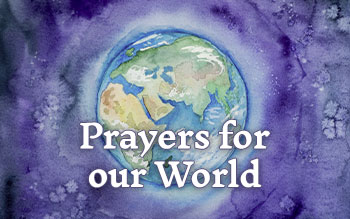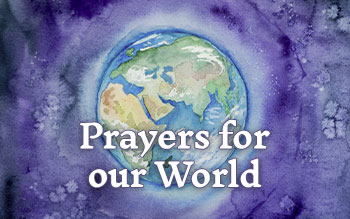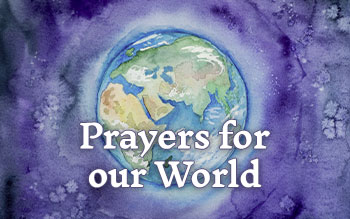Displaying items by tag: sanctions
Afghanistan: extreme poverty and hunger
Extreme hunger is causing parents to sell their kidneys to feed their children. Illegal organ trading existed before the Taliban takeover, but the black market exploded when millions more were plunged into poverty after international sanctions. Currently the UN estimates that 24 million people, 59% of the population, are in need of lifesaving humanitarian aid. ‘I had to do it (sell a kidney) for the sake of my children,’ said 32-year-old Nooruddin, ‘I didn’t have any other option. I regret it now.’ He was speaking outside his home, where clothes hang from a tree and a plastic sheet is a window pane. ‘I can no longer work. I’m in pain and I cannot lift anything heavy.’ The practice is so widespread where Nooruddin lives, that it is nicknamed ‘one kidney village’. Children desperately search through litter for food waste, and shops are closed. People have no money to buy things. Mother-of-three Aziza said, ‘If I don’t sell my kidney, I will be forced to sell my one-year-old daughter.’
Ways the UK could shake Putin
For Global Britain to be credible it is time for its architect, Boris Johnson, to intervene with retribution tactics not deterrence. Closing Russia’s embassy and removing their diplomats while removing ours from Moscow would indicate a fundamental shift in the understanding of Russia as not a partner in diplomacy, but a threat to other nations. Russian state outlets in the UK, like Russia Today, spouting propaganda masquerading as journalism, should be shut down immediately to prevent misinformation. Those operating in politics, law, and media while representing Russian state interests should be forced to declare who is paying their bills. Visas should be cancelled and assets of everyone linked to Putin’s regime frozen. Of all the economic sanctions, cutting Putin’s regime off from SWIFT international payment system would remove Russia’s ability to make international transactions, trigger capital outflows and currency instability, and hit buyers of Russian oil and gas.
Nicaragua: sham election
President Daniel Ortega has gripped Nicaragua’s election on 7 November by arresting all competition, controlling electoral authorities, and reinventing himself as a business-friendly devout Catholic. The US is working with international partners to prepare new sanctions to be levied if he wins the election that Washington denounces as a sham. It has also begun a review of Nicaragua’s participation in a Central American free trade agreement and has halted support for any ‘trade capacity building’ activities seen as benefiting Ortega’s government. Nearly half of Nicaraguans live below the poverty line, and an additional 90,000 individuals fell into poverty as a result of the pandemic. Nicaragua is one of the most corrupt countries globally - a costly, painful legacy of misrule by Ortega’s dictatorship. He stole, wasted and misused state resources, which were destined to combat poverty and used for national development, resulting in immense economic costs. See
Belarus: protests and sanctions update
Opposition leader Sviatlana Tsikhanouskaya urged the EU to approve sanctions on officials accused of rigging the recent presidential election. Despite six weekends of mass protests against President Lukashenko over the disputed vote on 9 August, the EU has not followed through on its threat to impose sanctions on 40 Belarusian officials. ‘EU leaders have reasons not to push sanctions but I asked them to be more brave’. The opposition leader, who fled to Lithuania after the election, said: ‘Sanctions are important in our fight because they could force the so-called authorities to start dialogue with us in the opposition council.’
Prayers for North Korea
Even though it appears that denuclearization talks with North Korea are going nowhere, Kim Jong-un still claims to have a special relationship with Donald Trump who says that there are a "lot of things going on" with North Korea. Yet, Kim calls on the U.S. to "act wisely" through the end of the year, blaming U.S. policymakers for their hostility to North Korea. And, to make matters worse, the North shot off two missiles on the last day of October.
In the meantime U.S. and U.N. sanctions continue to hurt the North, including its fishing and coal industries even as coal smuggling into China continues at full speed and the military sells coal in order to purchase uniforms.
The North continues to send workers into China by taking advantage of loop-holes in the sanctions. A recent report to the U.N. shows the ongoing impact of sanctions on the most vulnerable in North Korea, especially women and children, pointing out that nearly 4,000 civilians have perished as a result. The report was produced by Peace Now and delivered by our Ignis partner, Joy Yoon, who, along with her husband, Dr. Steve Yoon, have been treating children in North Korea over the past ten years. Here is an interview with Dr. Yoon about North Korean children.
Meanwhile, the elderly in the North are turning increasingly to begging to survive and the U.N. Food and Agriculture Organization is predicting that the food situation will worsen. As is widely known, the North has been manufacturing and selling drugs to generate funds. The consumption of "ice" in North Korea has become a massive problem as a defector recently shared.
On the technology front, North Korean smart phones are having an increasing impact, changing society and helping merchants to cut down on their costs. The manufacture of smart phones and other high tech devices depends on rare earths which are largely controlled by China. They are strengthening their position by preparing to tap North Korea's extensive reserves in exchange for providing solar power technology. The North is also reforming its education system to put science and technology at its center.
At the same time, construction on tourist attractions forge ahead with completion of the new Wonsan beach resort expected by the spring of next year. Kim Jong-un, in a recent inspection of a new spa being built, expressed his "great satisfaction" with its "socialist architecture" even as he belittled the Diamond Mountain resort built by South Korea, calling for the old buildings to be demolished to make way for new ones. Moon Jae-in of South Korea has agreed to talks about the future of the resort.
Remembering Our Brothers in Prison
We continue to pray for six South Koreans held in the North as well as Daily NK journalist, Choi Song Min (alias). Here's information on the pastors and others who have been detained and released. Please remember them in your prayers.
Ben Torrey - Director
The Fourth River Project, Inc.
IRAN: Believers targeted amid US-Iran tensions
Iran (MNN) — Tensions rise between the United States and Iran amid sanctions, threats, and fights over missiles, nuclear deals, oil stores, and shipping routes.
Last week, Iran tested ballistic missiles as the U.S. worked with allies to safeguard ships in the Strait of Hormuz. According to Middle East Monitor, Russia predicts “full-scale armed conflict” in the region.
Unfortunately, these sky-high political tensions have led to a crackdown within Iran, explains Heart 4 Iran’s Mike Ansari. “In the last few weeks, [the] Iranian government has announced the arrest of multiple Iranian citizens who were allegedly CIA spies,” he says.
“In light of the recent sanctions, Iranian authorities are increasing the pressure on Western governments to loosen up the restrictions imposed on Iran.”
Authorities often target believers for accusation and arrest.
Life for believers inside Iran
Earlier this year, Open Doors USA placed Iran at #9 on its World Watch List – a ranking of 50 nations where following Christ is most difficult. By law, Christians cannot share their faith with non-Christians. Believers from a Muslim background face the most oppression because Islamic law governs Iran; society views converts as apostates.
“In Iran, conversion from Islam to Christianity – known as apostasy – is strictly forbidden. In fact, Iranian religious rulers have publicly advocated for the death penalty as a punishment for apostasy,” Ansari explains.
“When a Muslim converts to Christianity, they are warned, persecuted, [sometimes] arrested, and their belongings are confiscated.”
For converts who leave Iran, return could mean imprisonment and severe persecution. “Case in point – Mrs. Fatemeh Azad, a 58-year-old Iranian convert to Christianity who fled Iran, sought refuge in Germany, but was denied asylum and deported back to Iran,” Ansari describes.
“Upon her return, she was arrested and released on bail.”
As reported here by International Christian Concern:
When Fatemeh made her asylum appeal, her lawyers argued that apostasy (conversion away from Islam) is punishable by the death penalty in Iran. This penalty has not been issued in Iran for several years, in large part thanks to international pressure. However, Iran regularly imprisons converts for years. Christians are commonly charged with “acting against national security” and can face a prison sentence of up to 15 years with this charge.
“The Iranian Christian community in diaspora is concerned with the safety and well-being of Mrs. Azad while she resides in Iran,” Ansari says.
How to help
Mrs. Azad’s case represents a larger challenge, he adds. That’s an urgent matter for which you can pray.
“The real concern for Mrs. Azad is that Iranian authorities may use her as a pawn to not only instil fear in the heart of their own people but challenge the international community on human rights and religious freedom in Iran.”
Ask the Lord to comfort and encourage Fatemeh Azad during her imprisonment. Pray for her safety, Ansari requests, and “pray for the multitude of Iranian refugees who have legitimately fled Iran and can’t go back.”
Heart4Iran partners with over 100 groups to bring the love and hope of Jesus Christ to the people of Iran.
Reporting by Katey Hearth for Mission Network News
More at: https://www.mnnonline.org/news/believers-targeted-amid-us-iran-tensions/
Pray: For the safety and freedom of Mrs. Fatemeh Azad and many others in a similar situation to practice their faith.
Pray: That she will not be used as a pawn within Iran or internationally.
Pray: For those working to represent Mrs Azad and other Christians who face persecution in their home countries.
Iran: Rouhani threatens to break nuclear deal
President Hassan Rouhani has said that on 7 July his country would exceed the 3.67% uranium enrichment limit set by the 2015 nuclear deal by ‘as much as necessary, as much as we need’. Iran will reverse this action if the other parties to the deal - Britain, China, France, Germany and Russia - abide by their commitments. The agreed enrichment limit is sufficient for power generation, but far below the 90% level needed to manufacture nuclear weapons. Rouhani also said Iran would restart construction of a heavy water reactor, and bring it to the condition that ‘according to you, is dangerous and can produce plutonium’. Iran has often threatened such action unless it gets some relief from the sanctions imposed on the country. The five other signatories of the deal are struggling to keep it afloat after US president Donald Trump walked out of it last year.
Syria: oil shortages and pipeline sabotage
Five underwater pipelines off Syria’s coast were sabotaged on 22-23 June. No group claimed responsibility for this ‘terrorist attack’. Syria has been beset by fuel shortages since the EU, UN and US imposed sanctions and asset freezes on certain individuals in response to atrocities carried out by the regime. Since April, private car owners have had to queue at petrol stations after being restricted to twenty litres of fuel every five days. Iran was supplying 1 to 3 million barrels a month, but after Trump withdrew from the nuclear deal the US has tightened energy sanctions to push Iran’s crude exports to zero. However, tanker-tracking firms believe Iran delivered a million barrels of crude oil recently.
Iran Threatens To Resume High-Level Uranium Enrichment Amid U.S. Sanctions
Iran's president said the Islamic republic will resume high-level enrichment of uranium if world powers do not protect its interests against U.S. sanctions.
Hassan Rohani's address to the nation was aired by state television on May 8, the anniversary of President Donald Trump's decision to withdraw the United States from a landmark nuclear agreement.
The announcement further escalates tensions between Tehran and Western nations -- first and foremost, the United States, which this week said it was deploying an aircraft carrier battle group to waters near Iran.
Rohani said the remaining signatories of the 2015 accord -- Britain, France, Germany, China, and Russia – had 60 days to take measures to protect Iran's oil and banking sectors.
Western officials reacted cautiously to Rohani's announcement.
In London, U.S. Secretary of State Mike Pompeo, speaking alongside British Foreign Secretary Jeremy Hunt, said Washington will wait to see if Tehran follows through on its threats before deciding its next move.
The White House, meanwhile, announced new economic sanctions targeting Iran's steel, copper, aluminum, and mining sectors, all key sources of revenue for the country.
"Tehran can expect further actions unless it fundamentally alters its conduct," Trump said in a statement released by the White House. "I look forward to someday meeting with the leaders of Iran in order to work out an agreement and, very importantly, taking steps to give Iran the future it deserves."
In his speech, Rohani said Iran will start reducing some of its commitments under the 2015 nuclear deal and will no longer export enriched uranium and heavy water to other nations as stipulated in the accord.
He said Iran would begin to build up its stockpiles of low enriched uranium and of heavy water, which is used in nuclear reactors, including a reactor that could produce weapons-grade plutonium.
If the Europeans fail to compensate for the unilateral American sanctions, he said, Iran will resume construction of the Arak nuclear reactor, a facility that was shut down, and its key components dismantled.
"If the five countries join negotiations and help Iran to reach its benefits in the fields of oil and banking, Iran will return to its commitments according to the nuclear deal," Rohani said.
However, Rohani warned of a "strong reaction" if European leaders instead sought to impose more sanctions. He did not elaborate.
Iranian Foreign Minister Mohammad Javad Zarif also tweeted: "After a year of patience, Iran stops measures that [the United States] has made impossible to continue."
Other European signatories of the deal urged Iran to uphold the nuclear pact and said they want to keep the Iran deal alive.
French Defense Minister Florence Parly warned that if Iran did not keep its commitments, re-imposing sanctions would be considered.
In Berlin, the office of German Chancellor Angela Merkel said: "We as Europeans, as Germans, will play our part and we expect full implementation from Iran as well.”
At his news conference with Pompeo, Hunt said that Iran's threat to resume higher enrichment of uranium is an "unwelcome step" and urged Tehran to adhere to the deal.
Russia, meanwhile, has blamed the United States for the crisis, a point Foreign Minister Sergei Lavrov repeated during a news conference in Moscow with Zarif.
“The U.S. is to blame for the situation and it makes it difficult for both Iran to fulfill its obligations and...for the general state of the nuclear nonproliferation regime,” Lavrov said.
Zarif insisted that Iran's latest decision did not violate the agreement, and asserted it was provoked by U.S. actions toward Iran. He said Iran will uphold its obligations if European signatories to the deal uphold theirs.
China, which was also a signatory to the deal, said maintaining and implementing "the comprehensive agreement is the shared responsibility of all parties.”
"We call on all relevant parties to exercise restraint, strengthen dialogue, and avoid escalating tensions," said Chinese Foreign Ministry spokesman Geng Shuang.
The 2015 nuclear pact, known as the Joint Comprehensive Plan of Action, lifted crippling economic sanctions in exchange for Tehran agreeing to curb parts of its nuclear program.
Last year, Trump announced the U.S. pullout, arguing it was flawed because it did not include curbs on Iran’s development of ballistic missiles or Tehran’s support for proxies in the Middle East.
Washington also reinstated sweeping sanctions that have badly hit the Iranian economy.
Despite the U.S. moves, Tehran has continued to comply with the terms of the deal, according to the International Atomic Energy Agency.
European backers of the deal have been trying to salvage the agreement, but Tehran has complained that the process is too slow.
Last month, the U.S. administration announced it would not permit importers of Iranian oil to buy it without facing U.S. sanctions. Oil exports are a major source of revenue for the Iranian economy.
On May 8, Tim Morrison, Trump's special envoy on weapons of mass destruction, threatened that the United States was ready to impose more sanctions "very soon" and warned European nations against doing business with Tehran.
With reporting by the AP, Reuters, BBC, and AFP
More: https://www.rferl.org/a/iran-to-reduce-commiments-to-to-nuclear-deal/29928087.html?ltflags=mailer
Pray: that the disagreement will not lead to nuclear proliferation
Pray: for the ordinary Iranian citizens affected by the economic sanctions
Pray: that Iran will comply fully with the nuclear deal
Iran / USA: sanctions and sabotage
On 10 May US merchant vessels were warned of potential threats to commercial shipping and oil production infrastructure in the seas near Iran. On 13 May two Saudi oil tankers were attacked as they prepared to cross into the Persian Gulf. ‘Significant damage to the two vessels’ halted further movement. Meanwhile seven (Iran-backed) Houthi drones targeted two (US-backed) Saudi pumping stations along a pipeline carrying 5m barrels of crude oil a day; in response, the USA has deployed aircraft strike groups and B-52 bombers to the region. On 15 May Iranian newspapers reported that Tehran will resume higher nuclear enrichment (beyond the permitted 3.67%) in sixty days if no new agreement is reached about sanctions being lifted. The US embassy in Baghdad has ordered all non-essential and non-emergency staff to leave Iraq immediately, as tensions grow between Washington and Iran. See









